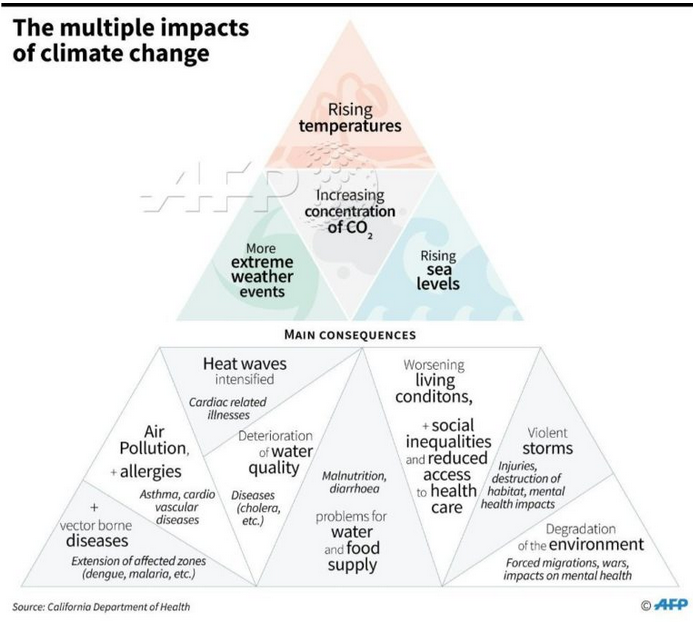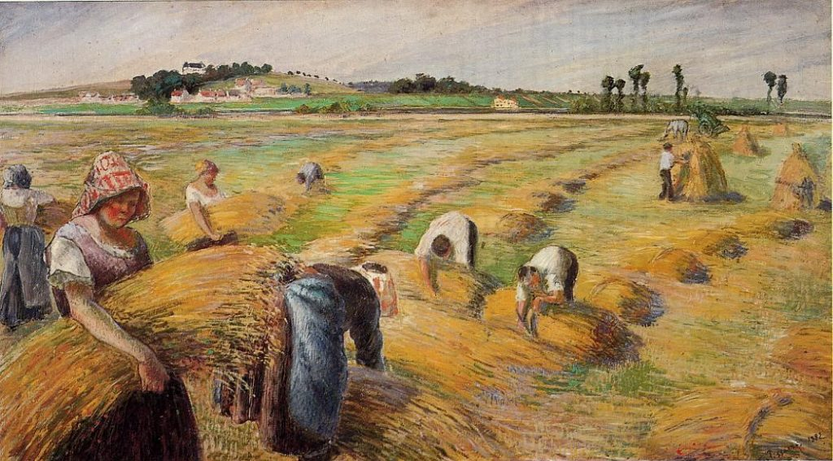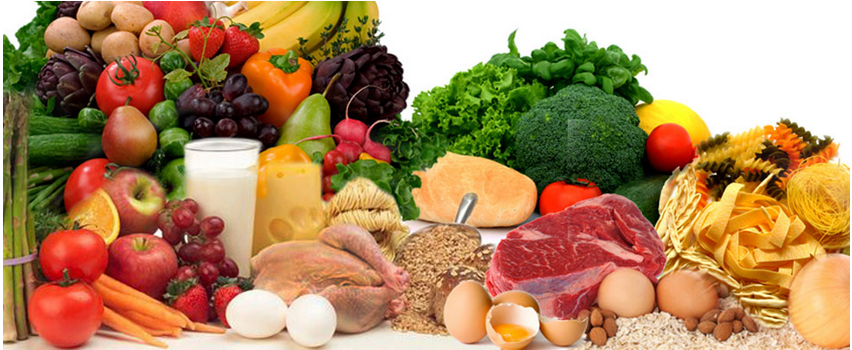We are increasingly aware of the food that we eat, the nutrition intake that food brings and the impact of our shopping and consumption habits have on the planet. That is as it should be.
The food we consume, that is, our dietary habits, contributes in one degree or another, to our health, but also, to the planet health by leaving a climatic footprint. Specifically, food production contributes to the effect on global warming through cultivation system, how animals have been raised, how they have been stored, processed, packaged and transported to the different markets around the world.

The current world food production system is affecting the terrestrial and marine ecosystems in a significantly way, thus contributing to the obvious climate change. It is not about being an alarmist, but is about becoming aware of a reality that is already happening.
On 8 august, the new report of the United Nations Intergovernmental Panel on Climate Change (IPCC, 107 experts from 52 countries) on “Climate Change and Earth”. The figures speak in this report and show that the current food system – which includes farming, animal husbandry, processing, packaging and transport – is responsible for the 37 % of the total greenhouse gas emissions (GHG) that are generated annually and that, food losses and food waste also collaborates with 8-10 % of the total.
The consequences of these emissions are directly related to the increase of the CO2 level in the atmosphere, the increase in the temperature of the planet, the climatic disasters or the rise in the sea level, which turn into a clear threat to the quality and quantity of current crops. Therefore, affecting food security for the population, for the inhabitants of the planet, for all of us.
It is necessary to address the risks that are already present and reduce vulnerabilities in food production and distribution systems and land management.
According to the data from the IPCC report, climate change will affect food security by limiting access to certain foods, reducing nutritional quality and increasing their prices. The effects will be much more marked in low-income countries.
The Report stated that is necessary limiting global warming to 1.5 oC instead of 2 oC … And yes, this difference of half a degree is crucial on the effects on the soil, marine species and ecosystems and, also about the benefits that this would bring in nature for all humans; fishery, water supply and food insurance, in addition to health, safety and economic growth.
To limit warming, a reduction in CO2 and other GHG emissions is required by 45 % by 2030 (compared to the levels of 2010) and achieve net zero emissions by 2050. This requires a profound change and a rapid action in reducing these emissions in all sectors (energy, land, cities, transport, buildings, industry) so is necessary a greater investment in the application of new strategies and technology breakthrough.
With the focus on these actions aimed at adapting and mitigating the effect of climate change, the report indicates as better opportunities; an urgent change in human diet to achieve a reduction in GHG emissions linked to food production, an improvement in livestock and farming production systems to reduce the energy and water consumption currently used and, a reduction, to get eliminate, losses and food waste.
A healthy and sustainable diet includes foods with a lower carbon footprint so that, such diet, would be based on the consumption of vegetables, legumes, cereals, nuts and seeds as essential foods and foods of animal origin produced in resilient, sustainable and low GHG emission systems.

The report expressly states that, currently, livestock systems for meat and meat products production demand more water and soil and generate higher emissions of gases compared to those of cereal and seed production. This effect is greater in developed countries where breeding is carried out intensively and is urged to produce them in a sustainable manner.
In the study carried out by Poore & Nemecek (2018) it was also evidenced that the environmental impact of the production of food of animal origin exceeds that of plant production, highlighting the need to reformulate the practices carried out in this activity . They also showed that, although producers are a vital part of the solution to this problem, their ability to reduce environmental impact is limited. These limits mean that the same product can have a greater impact than another nutritionally equivalent and therefore, they also urge a change in the pattern of the diet.
The need to adapt our diet to the limits of sustainability aspects is evident and, so much so, that the IPCC refers to it as “low-GHG carbon diet”.
Low-greenhouse gases emission diets are balanced diets that require less water and less land use and cause less GHG. These are diets with more foods based on coarse grains, legumes, fruits, vegetables nuts and seeds and foods of animal origin produced in a sustainable way.
Other actions aimed at diversifying the food systems proposed in the report in relation to the form of food generation are; the implementation of integrated production systems, the improvement of broad-genetic resources, more intelligent and integrated agricultural systems, best livestock production practices and the reduction of fertilizers use. All of them, in order to reduce the environmental impact through better soil management as a strategy to achieve sustainable use and, therefore, quality food production.

Regarding the reduction of food waste, it is aimed at curbing the need to produce more and, therefore, to reduce the overexploitation of the soil and the consumption of water and nitrogen-based fertilizers, deforestation of areas to convert them into agricultural land and, in the cycle in which we are currently, worse crops are getting worse, poorer in nutrients and the consequent and foreseeable increase in the cost of cereals.
There is no one ideal solution, but a sum of many different actions.
We need to rethink our current food system and find new solutions to feed ourselves on a planet that continues growing. We are facing the challenge of finding effective solutions to produce food in a sustainable way. The way we produce food matters, in other words how we select what we are going to eat matters since it can face climate change and with the reduction in the pressure we are exerting on the land.
What we eat has a story to tell us … and that story makes us responsible and complicit in those effects. It is important to take a step forward in our diet and start thinking about what we eat beyond the hedonic aspect, since our consumption actions affect the productive capacity of the soil and, therefore, the quality of what is produced and even to the nutritional value of food. On the other hand, raising awareness of a more sustainable diet, in addition to collaborating in mitigating the effects of climate change, probably offers significant positive benefits on human health in the medium term.
- #WorldFoodDay; How can I help? - 16 October 2025
- A better life and a better future; right to foods - 16 October 2024
- Food reformulation; a step forward, that it is possible - 21 May 2024
